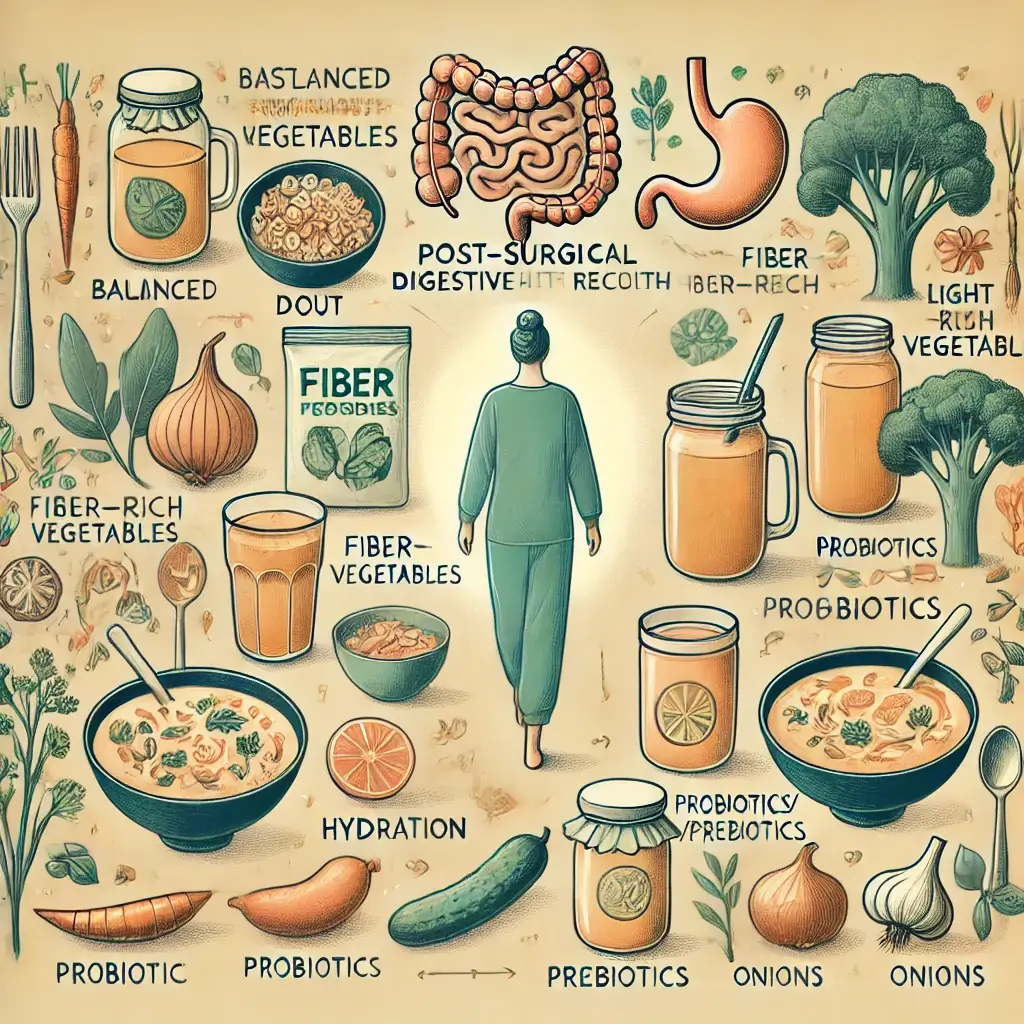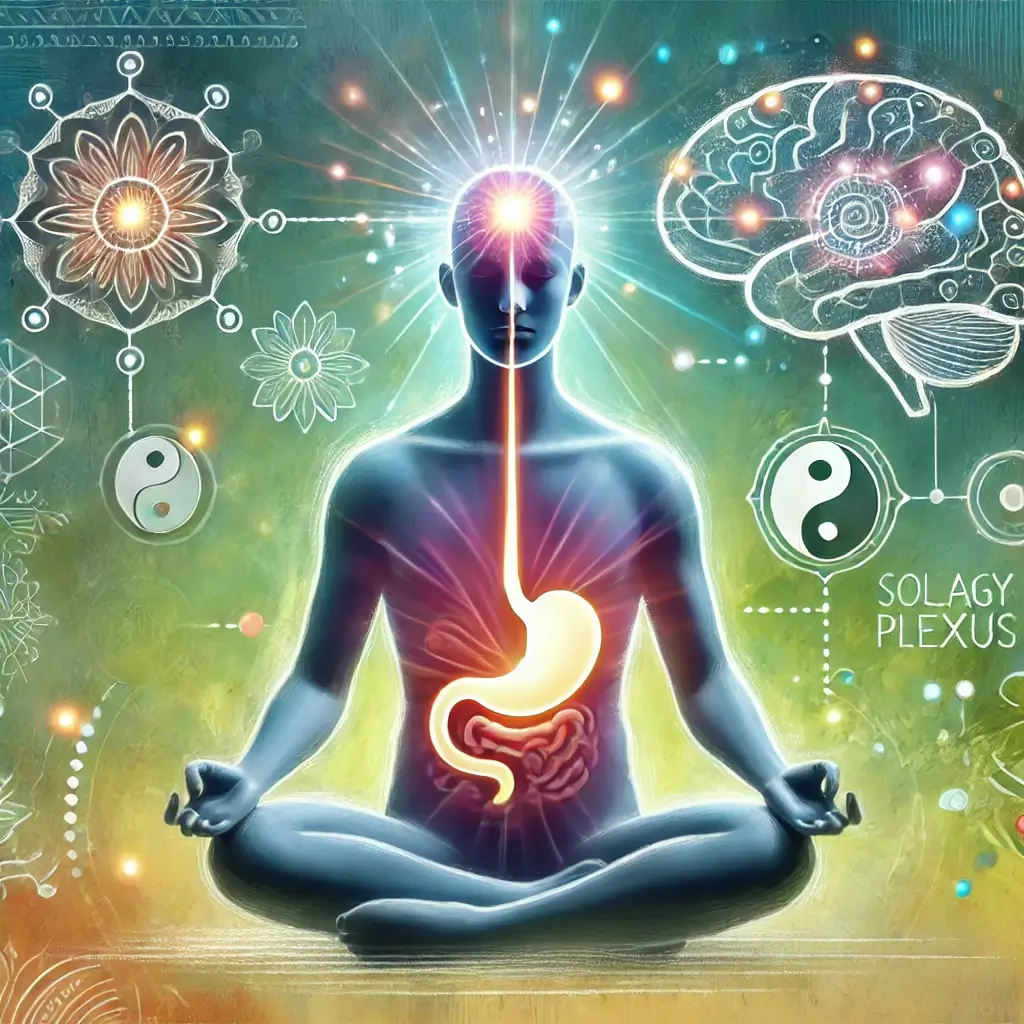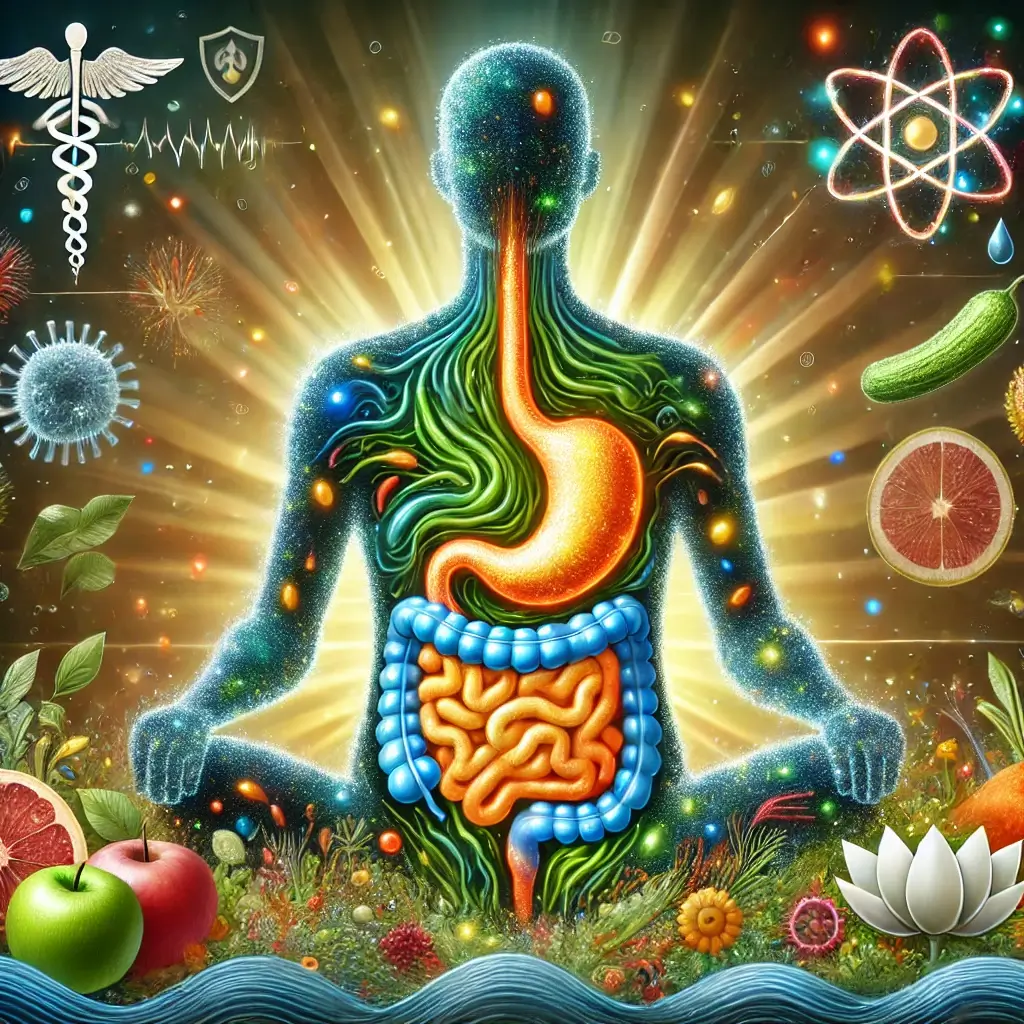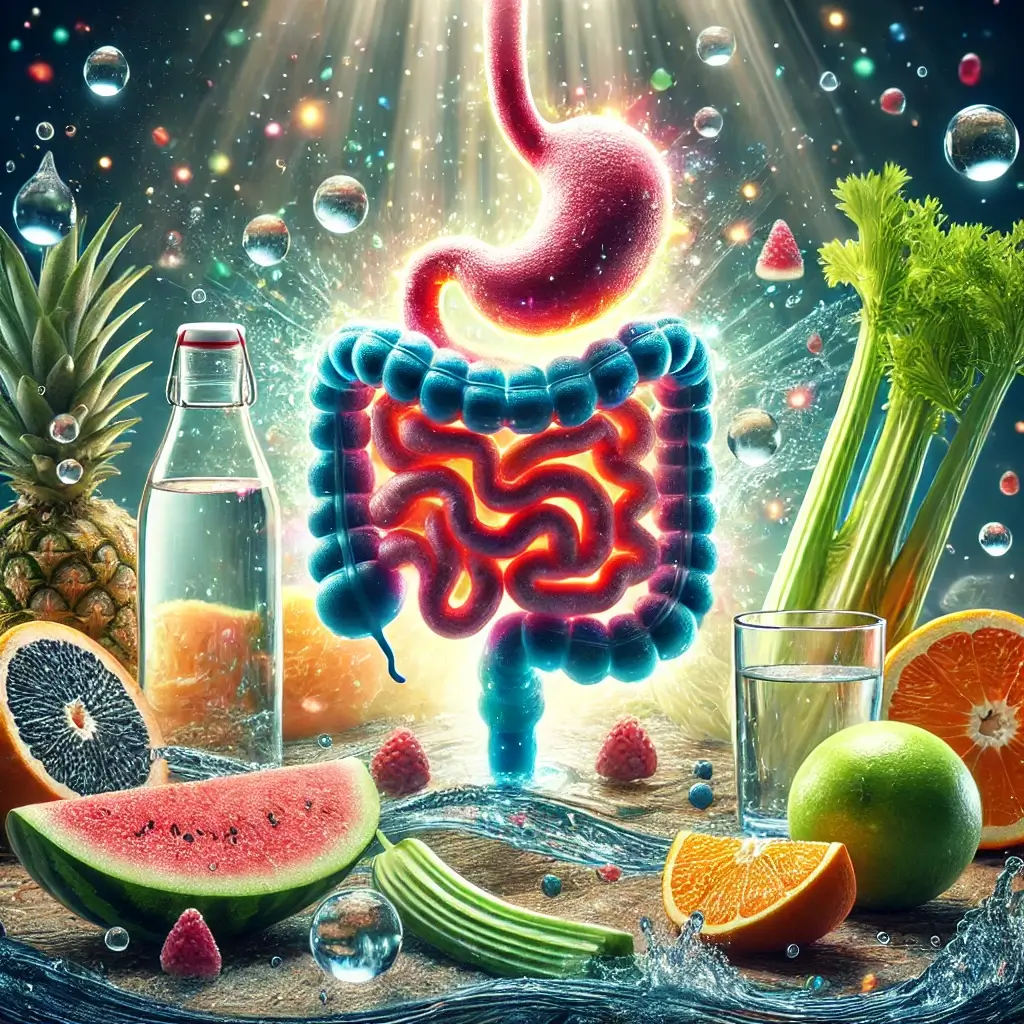Post-Surgery Digestive Care: 5 Science-Backed Strategies for Faster Recovery
Understanding Post-Surgical Digestive Health
Surgery is a significant event for the body, requiring comprehensive recovery processes to ensure optimal healing. Among these, digestive health often plays a pivotal role but is frequently overlooked. The impact of anesthesia and digestive system recovery, dietary adjustments, and medications like antibiotics or painkillers can lead to a range of digestive issues, including constipation, bloating, diarrhea, or nausea. While these issues are common, they can be effectively managed with targeted strategies.
This article simplifies the complexities of post-surgical digestive health, offering practical tips rooted in medical research. By understanding common challenges and implementing actionable strategies, patients can take proactive steps to support their digestive system during recovery.
Common Digestive Challenges After Surgery
1. Anesthesia and Gut Function
Anesthesia, a cornerstone of modern surgical care, often causes temporary disruptions in gut motility. Postoperative ileus and intestinal movement, a condition where intestinal movement slows or stops, is a frequent side effect. A 2017 study published in Anesthesia & Analgesia revealed that most anesthetic agents temporarily paralyze the intestines, contributing to symptoms such as bloating and delayed bowel movements.
2. Dietary Shifts and Microbial Imbalance
Post-surgery dietary restrictions often involve a transition to liquids or soft foods. While these diets are gentle on the digestive system, they can lack the fiber and nutrients necessary to maintain a healthy gut microbiome balance. A 2018 review in Nutrients highlighted the significant impact of dietary changes on gut bacteria, noting that reduced microbial diversity can lead to digestive discomfort.
3. Antibiotic-Induced Microbiome Disruption
Antibiotics and gut bacteria balance are commonly prescribed after surgery to prevent infections, but they can disrupt the delicate balance of gut bacteria. According to a 2015 study in Clinical Gastroenterology and Hepatology, antibiotics can significantly reduce bacterial diversity, often resulting in digestive symptoms like gas, bloating, and diarrhea.
Simplified Strategies for Managing Digestive Health
1. Gradual Dietary Adjustments
After surgery, it’s essential to reintroduce foods gradually. Start with easy-to-digest post-surgery foods like soups and broths, then transition to fiber-rich foods like oatmeal, bananas, and steamed vegetables. This approach minimizes stress on the gut while promoting regular bowel movements.
2. Stay Hydrated
Hydration is vital for preventing constipation, a common post-surgical issue. Aim to drink at least 8–10 glasses of water daily, and consider electrolyte-enhanced hydration after surgery if you’re experiencing diarrhea or prolonged fluid loss.
3. Probiotic and Prebiotic Support
Probiotics and prebiotics for gut health, found in yogurt, kefir, or as supplements, replenish beneficial bacteria in the gut. Prebiotics, on the other hand, serve as food for these bacteria and are present in foods like garlic, onions, and asparagus. Combining both can significantly improve gut health. A 2019 systematic review in Frontiers in Medicine supports the role of probiotics in alleviating bloating and enhancing digestive function.
4. Light Physical Activity
Gentle movement, such as walking, can stimulate intestinal motility and prevent issues like constipation. Even a post-surgery walking routine a few times a day can help improve digestion and overall recovery.
5. Managing Pain Medications
Painkillers, particularly opioids, are known to slow gut motility. If you experience constipation or other digestive side effects, discuss alternatives to opioid pain management or adjunct therapies with your healthcare provider.
Restoring Gut Health After Surgery
A balanced gut microbiome is essential for overall health. Here are some additional tips to promote gut balance post-surgery:
Fermented foods for gut recovery: Incorporating fermented foods like kimchi, sauerkraut, and kombucha can replenish gut bacteria naturally. Always consult your doctor before adding these to your diet.
Stress Reduction: Stress negatively affects the gut. Stress management techniques for recovery such as deep breathing, meditation, and progressive muscle relaxation can reduce stress and improve digestion.
Regular Meals: Eating smaller, regular meals can help your digestive system recover by reducing the burden on your gut and encouraging steady digestion.
Conclusion: Simplifying Digestive Health for Better Recovery
Post-surgical recovery and digestive health involves more than just healing the surgical site—it requires comprehensive care, including attention to digestive health. By addressing the effects of anesthesia, antibiotics, and dietary changes, patients can adopt simple, effective strategies to support their gut. Incorporating hydration, gradual diet adjustments, probiotics, and light activity into your recovery plan can make a significant difference in comfort and overall healing.
Always follow your healthcare provider’s advice for a tailored recovery plan, and seek medical help if digestive issues persist. Supporting your digestive system is a key step toward a quicker, healthier recovery.
References
Buettner, C., Ueberle, B., Faßbender, K., & Kuntz-Löffler, U. (2017). Influence of volatile anaesthetics on gastrointestinal motility. Anesthesia & Analgesia, 124(5), 1321–1332.
Guarner, F., Rinninella, M., Moreno, F. J., Maggi, L., Manichanh, C., & Loftus, S. (2018). Dietary intervention with prebiotics and synbiotics in gut microbiota. Nutrients.
Taur, Y., & Pamer, E. G. (2015). The intestinal microbiota and susceptibility to infection in immunocompromised patients. Clinical Gastroenterology and Hepatology, 13(10), 943–954.
Ouwehand, A. C., Salminen, S., & Isolauri, E. (2019). Probiotic and other functional microbes: From markets to mechanisms. Frontiers in Medicine.













